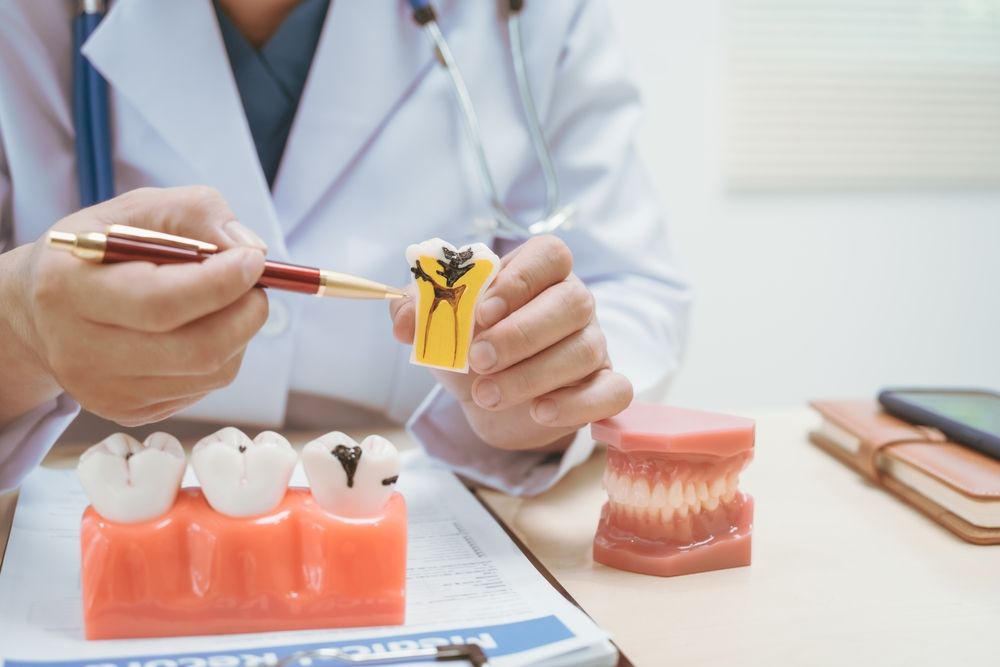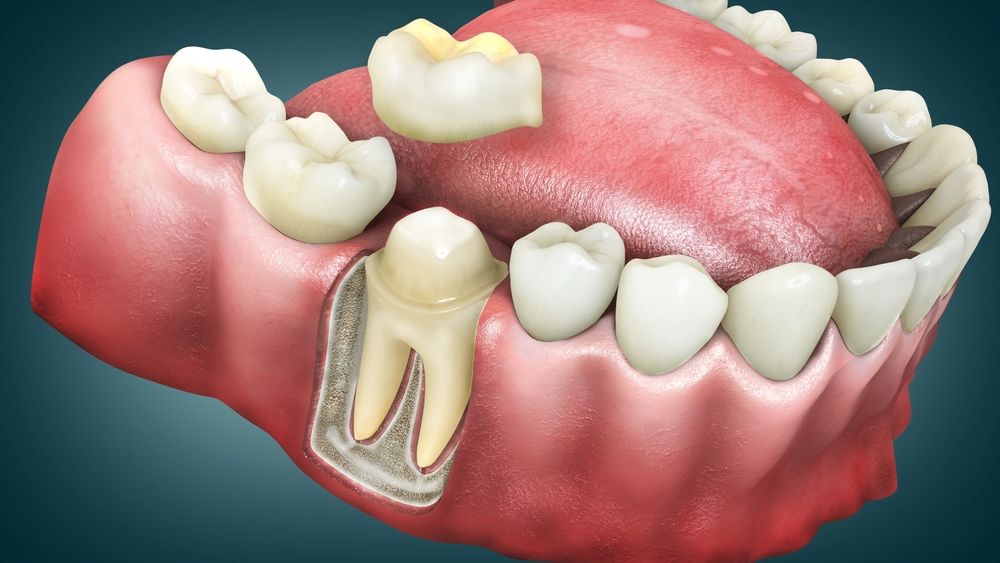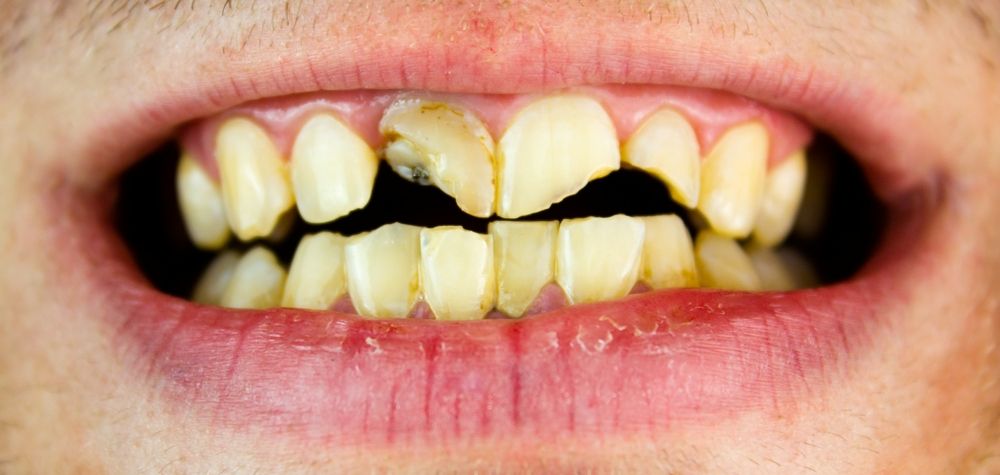Is a Cracked Tooth Dangerous? Causes and Treatments

Have you ever felt a sharp pain from biting something hard? This could mean a cracked tooth, which is a dental problem that needs attention. Though it may seem minor at first, a cracked tooth can become serious and often requires treatments like dental crowns to protect your smile and prevent cracked tooth complications.. Let’s explore the causes of a cracked tooth, how to manage the pain, and the most effective treatment options.
What Is a Cracked Tooth?
Many people wonder what exactly a cracked tooth is and how it differs from a chipped or fractured tooth. A cracked tooth refers to visible or internal damage to the tooth’s structure. The crack can be limited to the enamel surface or extend deep into the dentin and even the pulp chamber, affecting both function and oral health. Without proper treatment, the damage can worsen and result in tooth loss.
Causes of a Cracked Tooth
- Chewing on hard objects such as ice, hard candy, or bones
- Sudden temperature changes in the mouth (for example, drinking ice water followed by hot soup)
- Large dental fillings that weaken the remaining tooth structure
- Injuries from accidents or sports activities
- Natural wear and tear with age reduces tooth strength
- Harmful habits include aggressive brushing, nail-biting, consumption of acidic drinks, and smoking
Symptoms That Indicate a Cracked Tooth
You might experience one or more of these symptoms:
- Sharp tooth sensitivity when eating or drinking hot or cold foods
- Pain when chewing or applying pressure
- Discoloration or swelling of the gum around the affected tooth, which could signal an infection
Is a Cracked Tooth Dangerous if Left Untreated?
If you have a cracked tooth and leave it untreated, the crack can extend deeper into the root, causing an infection in the dental pulp, chronic pain, or even permanent tooth loss. At that stage, the treatment becomes significantly more complicated and expensive.
Possible complications include:
- Infection spreading to the gums and jawbone
- Weakening of the tooth structure, leading to more cracks
- Irregular chewing patterns that affect digestion
- Loss of aesthetics and confidence when smiling
What Should You Do When You Have a Cracked Tooth?
When a cracked tooth occurs, the most important thing is to not ignore it. Even if you don’t feel immediate pain, the crack can quickly worsen. If you notice symptoms, start with basic first aid: rinse your mouth with warm salt water, then apply a cold compress to reduce swelling. You may also take over-the-counter pain relief medication if needed.
However, it is recommended that you visit a dentist as soon as possible for a thorough examination. Early treatment increases the chance of saving your natural tooth and reduces the complexity of future dental procedures.

How to Treat a Cracked Tooth?
How to treat a cracked tooth depends on the severity and location of the crack. Understanding the available treatment options can help you and your dentist decide on the most suitable approach. The main treatment methods include:
- Dental Filling: For minor cracks that don’t reach deep layers, the dentist will use a tooth-colored filling material to seal the crack and restore function.
- Veneer: Ideal for small chips or superficial cracks. A thin porcelain shell is bonded to the front surface of the tooth for aesthetic improvement and to conceal the damage.
- Root Canal Treatment: If the crack extends to the pulp chamber, root canal therapy is required to clean the root canal and remove infected tissue. Afterward, a dental crown is placed to strengthen and protect the tooth.
- Dental Crowns: Recommended for large fractures, cracks that reach the pulp, or weakened teeth. Dental crowns provide full coverage, reinforcing the tooth and preventing further cracking.
In addition, patients with cracked teeth should avoid using the affected tooth to bite or chew hard foods until it has been properly treated. Visiting the dentist promptly for assessment and care can help prevent worsening damage and future complications.
Why Are Dental Crowns Important for a Cracked Tooth?
When a tooth is structurally weak from a cracked tooth, placing a dental crown is like adding protective armor. It strengthens the remaining structure, reduces the risk of repeat fractures, and restores natural shape and color. Although a crown can cost more than a filling, it’s a long-term investment that helps preserve your natural tooth and avoid future, higher cracked tooth treatment costs.
Start Your Strong-Tooth Journey with Dental Crown Services at THE IVORY DENTAL CLINIC
If the crack extends deep into the dentin or pulp, a dental crown is a key solution to reinforce the tooth and extend its lifespan, whether for aesthetics or normal chewing. If you’re looking for a clinic experienced in dental crowns, The Ivory Dental Clinic guides seasoned dentists with attentive care at every step, so you can smile with confidence again. For questions about how to treat a cracked tooth, approximate pricing, or to book a consultation, contact LINE: @theivorydental (include “@”) or Tel. 02-275-3599, 094-968-4294. Open daily from 10:00 AM to 8:00 PM
Start your strong-tooth journey with expert dental crowns at THE IVORY DENTAL CLINIC.
FAQs About Cracked Tooth Treatment
Q: Do I need a dental crown every time I have a cracked tooth?
A: Not always. Dental crowns are recommended when the crack is deep or the tooth structure is significantly weakened. For minor cracks, your dentist may suggest a filling or veneer instead. However, if a large portion of the tooth is lost, a dental crown is the most durable and protective solution.
Q: Can dental crowns really prevent another cracked tooth?
A: Yes, they can. A dental crown acts as a shield around the tooth, strengthening its structure and reducing the risk of new fractures. It also restores the tooth’s natural shape and color, allowing normal chewing function and a confident smile.
Q: How does the cost of a dental crown compare to a filling?
A: Generally, dental crowns cost more than fillings or veneers because they are a long-term restorative solution. They extend the lifespan of a weakened tooth and reduce the risk of needing extractions or repeat treatments in the future.



